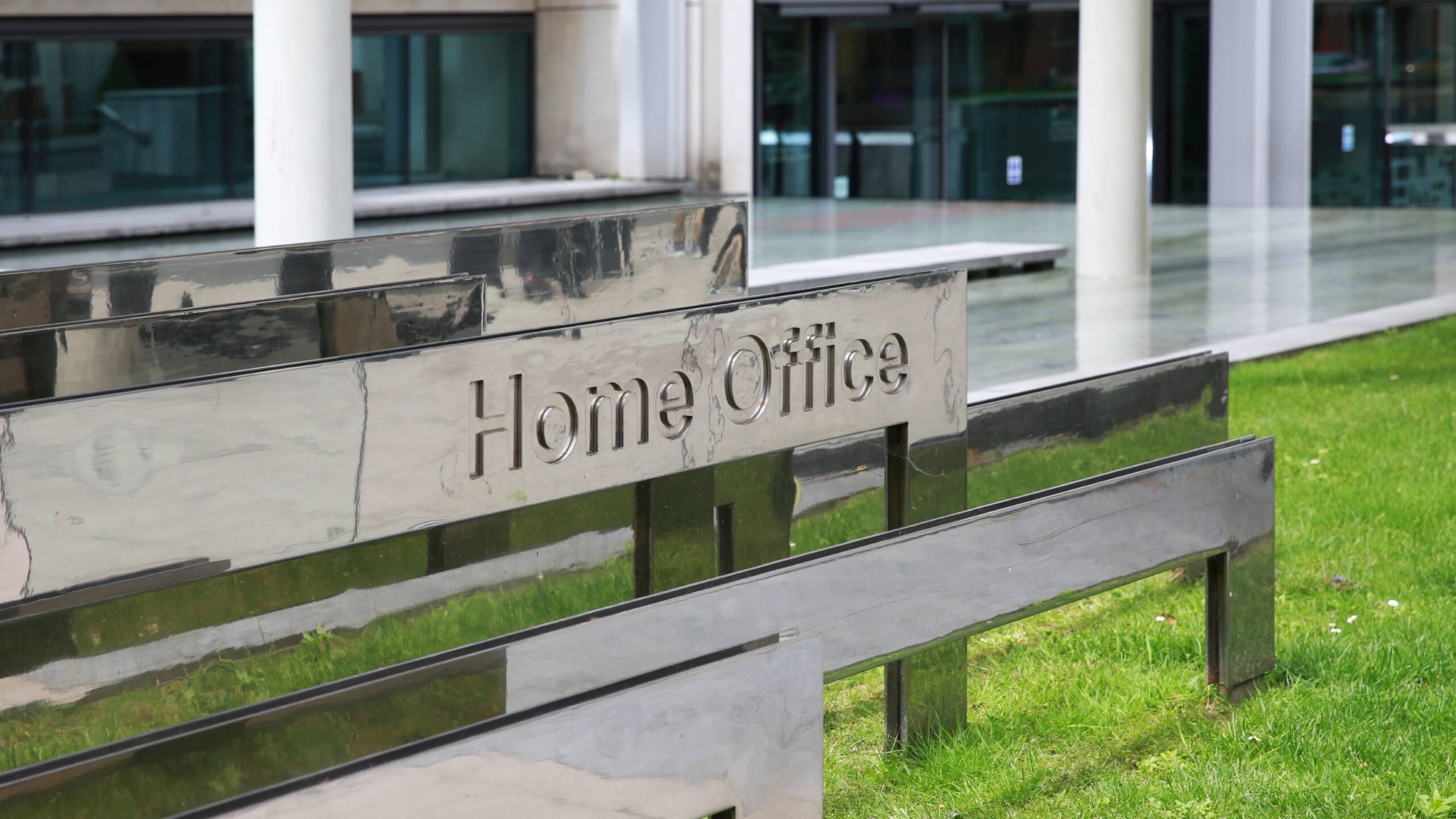The Foreign Influence Registration Scheme (FIRS) emerged out of the National Security Act 2023.
The idea was that, by way of the mandatory registration of activities broadly defined as involving “foreign influence” on the UK, both the UK’s political system and wider civil society would be made both more transparent and, in the case of certain countries’ actions, less of a national security risk.
The government published light-touch draft guidance for FIRS in September 2023, promising further detail ahead of implementation – including sector-specific guidance for research, academia and higher education.
FIRS trap
Nothing happened for a while, and then following the general election news emerged of a delay to the scheme, seemingly tied up with the question of Labour’s (still ongoing) “China audit” and a (hotly contested) claim that guidance wasn’t ready to go live.
One particular sticking point has become whether China would be put on the “enhanced tier” of the scheme, a development which would enormously increase the scrutiny faced by all organisations – including universities – involved in partnerships or collaborations with Chinese institutions. The Conservatives were rumoured to have been considering it while in power, and more recently Labour has reportedly been “resisting” such a move.
Fast forward to today, and there is still no decision over China – but the government has laid draft regulations placing Russia and Iran on the enhanced tier, announced that FIRS will come into operation from 1 July, and published sector-specific guidance for academia and research.
The additional wrinkle for higher education is that when the Department for Education announced that the Higher Education (Freedom of Speech) Act would go ahead in revised form, it decided that the overseas funding measures in section 9 would be “kept under review” while FIRS was implemented and the interaction between the two was assessed.
Tiers for FIRS
You will be glad to learn that FIRS is not “a register of foreign spies” – we even get a short section in a fact sheet to make this clear. It is, however, a register of arrangements – and the individual or power who makes an arrangement with a foreign power (or controlled entity) has to let the Home Office know.
At heart, FIRS is structured around two tiers: the “political influence tier” and the “enhanced tier”. All countries – except the Republic of Ireland – will be put in one or the other. And the difference between the two is vast.
Political influence is restricted to specific “directions” from other countries to influence the UK’s political domain. So this involves things like elections and referenda (perish the thought), ministerial or departmental decision-making, political parties’ activities, or the actions of parliamentarians (including in the devolved nations). There’s also the wider concept of influencing “public life”, which includes certain kinds of communications and the disbursement of money.
Where the Secretary of State deems it necessary to keep the UK safe or protect its interests, they will designate a foreign power (or part thereof) as being subject to the “enhanced tier”. This additionally requires the wider registration of “arrangements to carry out activities at the direction of a foreign power”, or activities carried out in the UK by specified entities controlled by a foreign power. In this case there is the possibility of a tailored approach to address particular risks.
At each level, the requirement is that you register the activities to be carried out, their nature, their purpose, any intended outcomes – plus start dates, end dates, and frequencies where relevant. Of course registration will include passing on details of who is carrying out the activities, and which foreign power is directing them. Some of this information will be published – but this will be limited to what is needed to achieve the transparency aims of FIRS. Personal details, information that would prejudice personal safety or national security, and commercially sensitive information will not be published.
Designating a country as being subject to the enhanced tier requires parliamentary approval – and as above this is currently being sought for Iran and Russia. How about China? As will be clear when we turn to some examples below, this is the big question when it comes to FIRS for UK higher education – China being moved up into the advanced tier would greatly complicate all kinds of educational and research initiatives.
The Conservatives in opposition are pushing strongly for it, though they never bit the bullet while in power. Speaking in the House of Commons today, security minister Dan Jarvis said:
For reasons that I completely understand, the shadow Home Secretary asked about China. He will recall the remarks I made to this House on 4 March, where I was very clear that countries will be considered separately and decisions will be taken by this Government based on the evidence. I said then, as I say again now, that I will not speculate on which countries may or may not be specified in future. That is the right way to proceed, and I hope he understands that.
It’s likely the question will continue to recur, every time an issue involving national security and China (or other countries) rears its heads – we should expect calls in Parliament and in the press for a country seen as a national security threat to be moved over to the enhanced tier.
Direction and production
For the purposes of FIRS, “direction” implies a power relationship – a contract or conditional payment on the one hand, coercion or the promise of future benefits on the other. So for our purposes a genuine collaboration, or a very generic request, would not count as direction. Neither is something “direction” simply because it is funded by a foreign power.
The actual registration and publication will be done by a special unit within the Home Office. This will also be the means by which the Secretary of State can issue “information notices” to get more information, or remind you to register activity should you be doing something that it is felt you should tell the Home Office about.
FIRS is an information gathering tool – it doesn’t restrict anyone’s ability to do anything in and of itself, it simply requires that activity is registered appropriately. And it only applies where you are directed by a foreign power – anything else you do or say on your own behalf is not covered by these requirements.
At FIRS I was afraid
The meat of the higher education and research guidance (framed oddly as the “academia and research sector”) is a series of 34 examples, illustrating where registration is required and where it would not be. There’s a potential impact in every area of university and related activity – but rather than go through every example here it would make sense to pick out a handful of points to illustrate some key impacts on research, teaching, and SUs – both for enhanced and political tiers. If this stuff is your job, or becomes your job, chances are you’ll be getting to know these examples very quickly anyway.
Teaching and recruitment
Let’s start at the beginning (example 1) – the education department of country A (not subject to the enhanced tier) wants to build a relationship with a UK university: the university gets more students via promotion and enticements within country A, but it also has to lobby the UK government about a short-term visa study programme for students from country A.
Clearly this is registerable – there’s an arrangement with country A, it is directed, and requires the use of political influence.
A lot of the concerns that led to the requirements that went into the Higher Education (Freedom of Speech) Act were about the potential for foreign powers to influence what is taught at universities. In example 6, a student from country G (enhanced tier) is studying a human rights course at a UK university, which includes material on the oppression of an ethnic group in country G by its government. The country G embassy contacts the students, and requires them to change course – threatening to force them to leave the UK if they don’t.
Here it is the student that is obliged to register – they have been obliged, with coercion used, by a foreign power, to change their course. What’s not at all clear is what would convince said student that this would be a good idea, or what protections would be available to them when they reported their own government to UK authorities.
But what about universities reporting back to an enhanced tier government on student behaviour? Examples 15, 16, and 17 all deal with reporting back to country V: we learn that a student reporting back on their progress, or a university reporting back on results, is not registerable. However, where the student is coerced into organising a protest about a speaker critical of country V, this is registerable (again, by the student).
Elsewhere on the enhanced tier regulations, there’s been an important concession (following consultation responses) regarding scholarships, which are now exempt from being registered. And importantly, activities carried out wholly at overseas universities – such as transnational education – will not require registration either.
A Swiss cheese of foreign influence
The more tedious and public end of the free speech debate has been concerned with otherwise low-profile, little known, escaping the public attention student activity. Student societies, students getting together in their own time, and reasonable debate. Almost entirely absent from the public but not policy discourse has been the regulation of research activity. Put bluntly, the ways in which other countries influence research into lethal weapons has had less political attention than which culture issue The Telegraph is upset about this week.
The new guidance provides that agents of specified foreign powers will have to register under the enhanced scheme where they are “undertaking a research project directed by a specified foreign power or specified foreign power-controlled entity.” As we learn from the Minister of State for Security Dan Jarvis the current specified countries under the enhanced tier are Iran and Russia.
This means that individuals directed by Iran, Russia, and whoever else comes under the future ambit of the scheme, would be required to register that they are being directed by these states and declare they are undertaking state directed activity. Somehow, this seems extremely unlikely to capture the full range of state directed activity even with the threat of a five year custodial sentence.
The scheme is narrowly applied and broadly defined as to avoid capturing a broad swathe of activities. Under the political tier
Registration would only be required under the political tier if the research formed part of an intentional effort by a foreign power to influence the UK’s democracy, for example, a specific area of government policy.
This is a really high bar to clear. As we learn further in the guidance activity which is funded and directed by a foreign power will not necessarily count as political influencing activity if researchers are free to arrive at their own recommendations. In other words, it is possible to influence the terms of the debate but not its conclusions and remain outside the scope of the scheme.
One of the oddities of the regulation is that “activity is only registerable where carried out in the UK.” This would seem to mean that where there are campuses abroad which included UK researchers, researchers from other countries, and researchers who would be a specified power within the UK, activity would be outside of this scheme.
The political influence tier of activity is designed to capture activities which are directly aimed toward parliamentary mechanisms and procedures. Aside from any debate on whether the specified countries are broad enough this means that political but not parliamentary political activities are not covered either. The guidance specifically states that
…any published research which intended to influence a political process would not require registration under the political influence tier, if it was clear on the research report that it was completed as part of an arrangement with a foreign power.
The scope of the research element of the scheme feels very narrow. The examples make clear that a UK provider would need to register under the political scheme where they are lobbying the UK government to further the interests of a foreign power as part of a funding arrangement. An individual would need to register under the political tier where they are acting as an intermediary for selling the technologies of a foreign power. And under the enhanced tier UK universities cannot rely on the ambiguity of a relationship and would seemingly have to register where there are future potential income opportunities.
It is also made clear that just because activities clear these schemes they do not get a clean slate for other legislation like the National Security and Investment Act. As long as a provider is not taking funding from a foreign power, and especially specific foreign powers, to direct research, funding, and influencing outcomes, they should not be impacted by FIRS. This does not mean they will not be impacted by the bureaucracy of every other scheme.
FIRS is helpful in setting an obvious floor for what is in scope but the ceiling is cavernous. There is significant latitude for influencing UK politics outside of parliamentary procedures and without directing research outcomes. The participants in the research ecosystem will on the one hand favour the flexibility but will rue the potential for being personally liable for another addition to an increasingly complicated web of international research rules.
Societies, SUs and CSSAs
One of the major concerns floating around the press coverage and the think tanks has been the activities of student societies on campus – specifically (but not exclusively), Chinese Students and Scholars Associations (CSSAs).
Last year a Henry Jackson Society report, Studying Abroad to Serve China, alleged that CSSAs are closely tied to and influenced by the Chinese government, presenting themselves as cultural organisations while actually being integral to China’s “United Front Work” strategy.
Meanwhile, the Telegraph has published allegations of Chinese students facing serious repercussions, including detention and interrogation in China, after participating in protests or making critical comments about the Chinese government while studying in the UK – which involve CSSAs locally and nationally.
Like plenty of religious, political and sporting groups on campus, societies of this sort will say that they affiliate to a national body. Many rarely discuss or disclose the ways in which overt or covert control or influence may be placed on their activities.
The sector-specific guidance covers “student bodies, societies or associations” – but there’s a problem. It appears from the guidance that Home Office officials think that student societies are legally separate bodies from their students’ union. But in the vast majority of cases, they have no separate legal personality – they are part of the SU. That matters because it impacts who has the legal duty to register.
For example, in a section designed to reassure universities about their own liability to register, the guidance says:
Where a registerable arrangement is made by a student society of a university: the society is required to register.
And across three case studies discussing different types of activity, there’s the same issue. So where one describes a society being directed by the government of a country to sign a petition and campaign against a UK government decision, the guidance says:
The student society is required to register as they are in an arrangement with the government of Country P (foreign power) from whom they receive funding (direction) to undertake campaigning activities to influence a government decision (political influence activities).
But legally, in most universities the student society doesn’t exist. It’s a part of the SU – placing the onus on the SU to register – and so places duties on underfunded student activities staff to risk assess and probe the activities of societies in ways that many will object to.
Separate guidance for charities then puts onerous duties on the trustees in the usual way.
The upshot is that CSSAs – and any other international society undertaking activity of this sort – will soon clock that they themselves are under no legal duty to register. Universities will also take comfort in guidance that makes clear “societies” are separate and have their own reporting duties.
The buck lands on the SU – who will be thinking hard about disproportionate scrutiny over a group of students that share protected characteristics, and who may object to their treatment by the SU to the university under OfS’ new harassment expectations.
Not only will the SU not have experience of what amounts to a whole new type of complex risk assessment, it will all happen in a way that actually discourages joined-up risk assessment and sensible concern over the sorts of things the HJS and the Telegraph alleges. You really couldn’t make it up.
If you believe the allegations that swirl around CSSAs, there are major student welfare concerns here – both for students who might be “under surveillance” from their colleagues, and for students who might be being coerced into watching others and reporting them. If you’re less sure that what the Telegraph or the HSJ say is widespread or even real, then there’s welfare and harassment concerns that surround poking around and applying heavy scrutiny to a particular group of students. And in England, the moment you start to think about potential interactions with free speech requirements and OfS’ new harassment requirements a headache ensues given both seem to cover SUs and societies without directly regulating them.
If nothing else, the guidance repeatedly states that it’s not that the activity is per se illegal – and if not, is it “free speech within the law” or does the influence chill free speech, and so on and so on and so on.
It would certainly seem like a good time to consider whether those straight-line cuts to the SU’s already tight budget are wise if junior staff are about to start to have to offer training on these complexities – and front out difficult conversations with those running international student societies.
Upshots
All of these new duties kick in on July 1st – so there’s very little time to understand the implications and get houses in order. The question on China and its tier allocation will be one to watch – the allegations are unlikely to go away.
There are several “foreign influence” offences, including a failure to register a foreign influence arrangement, and carrying out political influence activity where the overarching arrangement is not registered and the person knows that the activity is being directed by a foreign principal. The maximum penalty for failure to comply with the requirements of the political influence tier is 2 years imprisonment – and the maximum penalty in the enhanced tier is 5 years imprisonment.
If there are those who are carrying out what is currently covert activity who are under pressure to keep it that way – whether through incentives, or threats, or both, there is a real question about the way in which those individuals might evaluate that against any rules put in by a university (or so) in pursuit of the scheme.
More broadly, it’s yet another thing in terms of regulatory burden – and another one of those things where a duty is being placed on a public authority to do what many would argue is not their job to do at all, that they’re not sufficiently funded to do, and have not even been properly consulted on.




